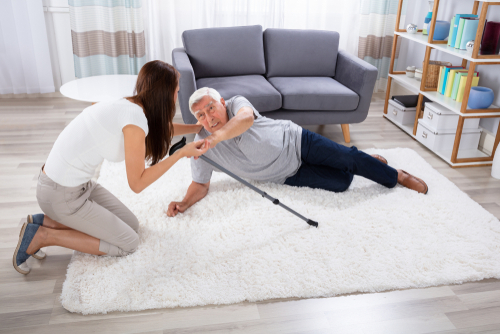Ways to Prevent Senior Citizens from Falling at Home

With age come mobility and flexibility issues. This often leads to old people feeling ‘off balance’ or actually falling. Many elderly people are frail and have pre-existing medical conditions. Weakened bones and muscles as well as the side effects of certain medications like sleeping pills, and/or medication for the heart, are the most common reasons for falls. Doctors at Medanta – The Medicity, say, that when an old person falls, since their bones are already weak, they are more likely to break. A fall also shakes their confidence and they begin to limit their activities and social interactions; this could trigger depression, anxiety and feelings of isolation. It has been noticed that after one fall, senior citizens become more susceptible to a second fall. Due to age related factors, recovery after a fall takes long. Therefore, prevention becomes even more important. A study titled 'Geriatric Health in India: Concerns and Solutions' says that the population of the elderly in India is likely to rise to 324 million by 2050. These growing numbers, increase the necessity of fall management because if not taken seriously, India could see a staggering number of sick and disabled senior citizens.
Ways to Practice Fall Management at Home
Fall management is about being aware that there are things that can be done to prevent falling.
- Eat healthy: Having a balanced diet and hydrating the body becomes even more important as
one ages. It helps maintain agility and stability in gait. - Keep the home clutter free: As far as possible, the floor should be kept free of all things such as loose rugs, extension cords and carpets. These are common causes for falls. The room of an elderly person should have minimum furniture.
- Make bathrooms safe: Bathrooms should have anti-slip tiles, support rails in the bathing area and rails to assist in getting up from the commode.
- The right footwear: Senior citizens are advised to wear well-fitted shoes and slippers to avoid the risk of falling.
- Check medications: Doctors suggest not taking prescribed medicines for longer than recommended by the doctor. It is important to revisit the doctor and get them to relook at the medication at regular intervals. Also, noting down the side effects of medicines, if any, is advisable. Overuse of medication, could weaken the body leading to instability in gait.
- Light up rooms properly: Installing bright light bulbs in areas such as stairways and narrow hallways are advised. For better assistance in the dark, night-lights in the bathroom and bedroom are recommended.
- Watch the steps: Stairs are a risky area for falling. Hand rails must be installed to offer better stability.
- Shoes not socks: Wearing just socks without shoes often increases the risk of slipping. Senior citizens can instead wear comfortable slippers or shoes at home.
- No baggy or trailing clothes: Wearing loose clothing or clothes which trail on the ground, can increase the chances of tripping and falling.






